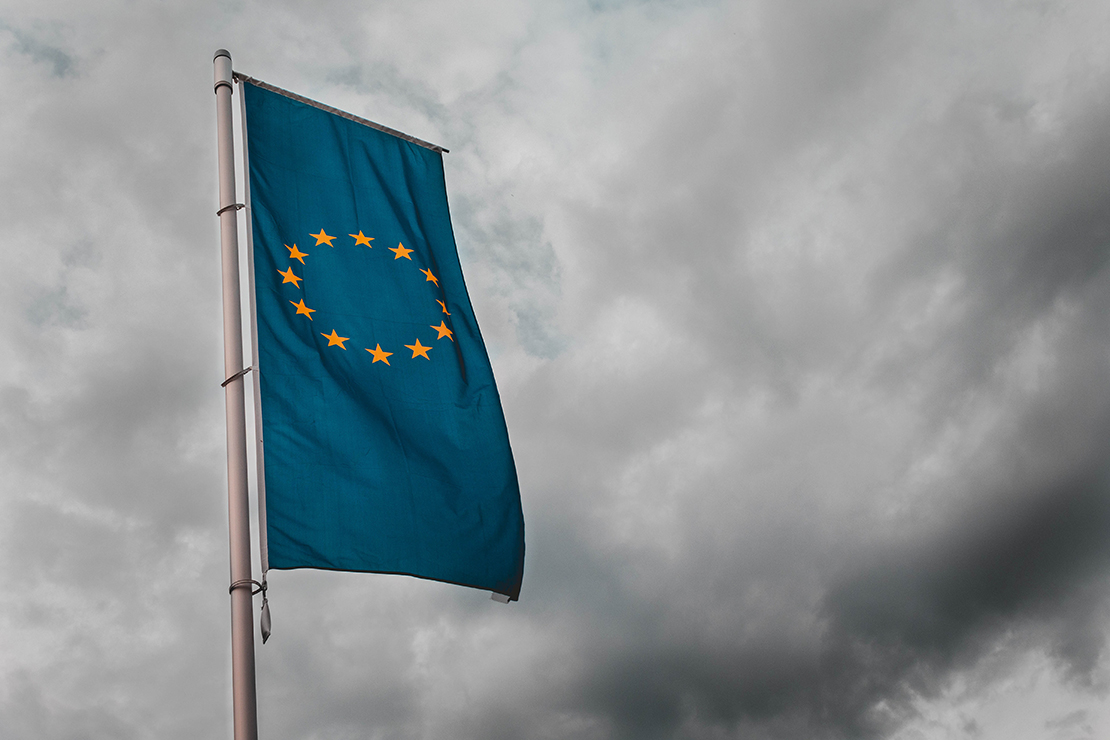Authors

Rreze Hoxha Zhuja
rule of lawThis Espresso Note examines the developments relating to the legal acts for the legal protection of persons accused of alleged crimes in trials before the Specialist Chambers (SCh). Five years after the adoption of the Legal Aid law, a local media reported that the Ministry of Justice has drafted three documents for the legal protection of persons accused before the SCh, the necessary financial support for their family members, and the compensation of persons who are acquitted from the SCh with a final decision.This note will shortly analyze the sublegal acts legality, purpose and scope and verify if they comply with the legal provisions of the legislation in force.
Since 2015, when the Legal Aid law was approved, GLPS constantly and continuously requested the drafting of sub-legal acts which would determine the procedures and the criteria necessary to gain the right to legal protection and financial compensation from the budget of the Republic of Kosovo. Moreover, it was requested that such acts be drafted with extra care and through a comprehensive process. Nevertheless, the Ministry of Justice in a closed, non-transparent and illegal process has drafted these acts and is in the process of finalizing the approval and then enforcing them.
Firstly, while drafting these documents the Ministry of Justice has not complied with Regulation No. 05/2016 on Minimum Standards for the Public Consultation Process, which was approved by the Government of the Republic of Kosovo on April 29, 2016. This Regulation obliges the Government to provide an opportunity for all relevant parties, citizens and civil society to be involved in shaping public policy, inviting them to be involved in the public consultation process on legislative initiatives and the decision-making and policy-making process. So ignoring the constant request of GLPS, and the interest of other interested parties, the Ministry of Justice acted on its own and broke all the transparency and accountability rules provided by the legislation in force.
Secondly, the Ministry of Justice failed to comply with the legislation in force when drafting the following acts as presented below.
- Draft Administrative Instruction on the legal protection of persons potentially accused of alleged crimes in trial before the Specialist Chambers
This draft administrative instruction sets out the procedure for covering the costs of legal protection of potentially accused persons by the SCh. This draft represents the act which was supposed to set the criteria, procedure and the parameters for gaining the right to legal protection and financial compensation from the budget of the Republic of Kosovo. Unfortunately, the current draft fails to do so and moreover offers the opportunity for financial abuse because this document provides that the financial details are to be classified as secret. This means that the people of Kosovo will only be informed of the general sum of budget spent and not on who or where this money went to. In addition to this, the draft does not specify the criteria in which the Commission should be based, in order to decide which accused gets what amount of money. This means that there is room for the Commission to act in discriminatory manner and use high amounts of the budget for one candidate while using low ones for others.
First, the law on the SCh[, in Article 21, paragraph 4, point (e) instructs that one of the rights of the accused is “to be tried in his or her presence, and to defend himself or herself through Specialist Counsel of his own choosing; to be informed, if he or she does not have legal assistance, of this right; and to have Specialist Counsel assigned to him or her, in any case where the interests of justice so require, and without payment by him or her in any such case if he or she does not have sufficient means to pay for it.” Moreover, the Legal Aid law, in Article 3 defines that all the accused have the right to request assistance in covering the costs of their defense, paid from the Kosovo budget. And that the legal protection of the accused persons, including the engagement of the defense counsel, is done according to the bylaws that will be approved by the Ministry of Justice.
So, according to the law on SCh, the right to free defense is attained by the accused person who does not have sufficient means to pay for his defense. Such a criterion is also recognized by the Legal Aid law which stipulates that the right to claim compensation belongs to each accused, and the right of each accused to file this claim does not automatically transform into the applicability of this right per se. In other words, neither of these two laws recognizes the right of each accused to legal compensation for the defense they choose. Such a right is guaranteed only to those who prove that they do not have sufficient means to pay for their protection. This is because the law on the SCh has defined as a primary criterion the inability of the accused to pay such protection. Unfortunately, the administrative instruction in hand does not reflect at all these criteria as it recognizes this right to all defendants and does not set any modality for proving financial impossibility for legal protection. And such an adjustment provided by this administrative instruction is contrary to the two relevant laws.
Second, the document in question fails to provide clear criteria where the Commission’s assessment of the claim for legal aid should be based. The administrative instruction specifies that the Commission when reviewing the request, it shall respect the principle of rationality, efficiency, effectiveness and that of the market, not defining the means on how such principles shall be respected. Such a regulation offers the possibility of misinterpretation of these principles and misuse of them while deciding on the request.
Third, this Article specifies that the coverage of the expenses for the legal protection of an accused shall be based on the a) fees set out by the Kosovo Bar Association; b) attorney’s fees in the Netherlands; c) fees of the state of defense counsel comes from; d) fees for legal protection of the potentially accused person before the Specialist Chambers. The first problematic issue of this type of regulation is the lack of determination of the maximum value that can be compensated. Hence, by not setting a limitation on the amount, the possibility that the fund might be abused is enormous. And secondly, this article uses confusing and unclear terms, by offering opportunities for misuse and financial abuse of this fund. Point d) of this Article which specifies as means to base the coverage of the expenses for legal protection of the accused person before the Specialist Chambers, is completely unclear as a means of determining the amount of protection and confusing where it is based. Therefore, such a regulation does not provide clear criteria and necessary limitations that a sublegal act must.
Fourth, Article 17 of this instruction specifies that the documentation for covering the costs of legal protection are treated according to the Law on Information Classification and Security Verification as well as the Decision of the Prime Minister no. 2192/2019, dated 31.01.2019. This decision stipulates that any information related to the Specialized Chambers and the Specialized Prosecutor’s Office is level (Secret) information and the only exception to this rule is information relating to financial means spent on legal protection and financial support. Such an arrangement is an attempt for financial abuse and misuse of the concept of legal aid and the principle of transparency and accountability. The financial source used to complete the purpose of this administrative instruction is the budget of the Republic of Kosovo and for any of its expenditures, the right to citizen information of any interested party is guaranteed. And this principle is being undermined by the classification (Secret) of documents that prove where and how public money is being spent.
Fifth, according to Article 11, the monthly costs of legal protection can be exceeded if the Commission deems it fair. Such an opportunity has been given to the Commission without any restriction or criterion on which it must rely for the approval of such a procedure. Once again such a possibility shall not be given without specifying clear criteria when it can be used due to the risk that it may be misused and altered.
Therefore, one can estimate that this draft administrative instruction fails to respect and materialize the legal provisions of the laws on which it is based. Moreover, the document in hand offers plenty opportunities for abuse of public funds of the budget of the Republic of Kosovo.
- Draft Administrative Instruction on the necessary financial support for close family members of persons potentially accused of alleged crimes in trials before the Specialist Chambers, on their related expenses when proceedings are conducted outside Kosovo
This draft administrative instruction defines the procedure for providing the necessary financial support for the close family members of the accused persons. Regrettably this document as well does not define clear procedures and restrictions necessary as required by law.
First, Article 5 of this document specifies that within one year all the accused have the right to be visited by a maximum of 12 close family members; no more than three persons may be present at each visit; and the family member must be compensated for the visit expenses for a period of 3 days. This document fails to determine the number of visits that can be made within a period of time thus leaving room for such an opportunity to be misused. Furthermore, paragraph 3 of this article recognizes the possibility for the Minister of Justice to allow additional visits for close family members, a competence which belongs to the Commission. Such an arrangement offers the possibility of creating discriminatory situations, interference of competencies as well as misuse of the foreseen fund. Third, Article 7 of the administrative instruction instructs that travel tickets are provided through the operator contracted by the Ministry at the amount of the economy class travel ticket depending on the means of transport chosen. This article fails to set the maximum monetary value which can be compensated for such a trip leaving the possibility open for unnecessary expenses which may be reduced, which serves as a means of misusing public money.
Therefore, one can consider that this draft administrative instruction fails to regulate in a fair, non-discriminatory and clearly divided manner the process and criteria that must be met for the recognition of the right to cover the financial expenses of family members of persons accused, as defined by law. Consequently, the Ministry of Justice must consider all points raised in this note in order to adopt sub-legal acts which will comply with the legislation in force and will serve their purpose. A candid regulation of the issue in hand would offer fair and equal treatment for all accused ones and their family members. Moreover, it would guarantee that public money is being used for the sole purpose of the Legal Aid law respecting the principle of transparency and accountability.
MINISTRY OF JUSTICE IN ACTION: MoJ drafts Administrative Instructions for financing the legal protection of persons accused before the Specialist Chambers in violation of the law

 Download PDF
25/08/2020
Download PDF
25/08/2020Share article
Related Espresso Insights
March 4, 2024
Espresso.Insights
Passport Hangover: What’s next after Spain’s Kosovo breakthrough?

January 16, 2023
Espresso.Insights
Recognized but not supported: Hungary's stance on Kosovo's EU bid

Latest Publications
April 24, 2024
Policy Analysis
Tracking Kosovo's Commitment: Monitoring Adherence to the Venice Commission Rule of Law Checklist in ...
April 8, 2024
Policy Analysis
Reflecting on the Third Year of Kurti II: Setbacks and Achievements in Rule of Law, Public Administr ...
March 22, 2024
Policy Analysis




